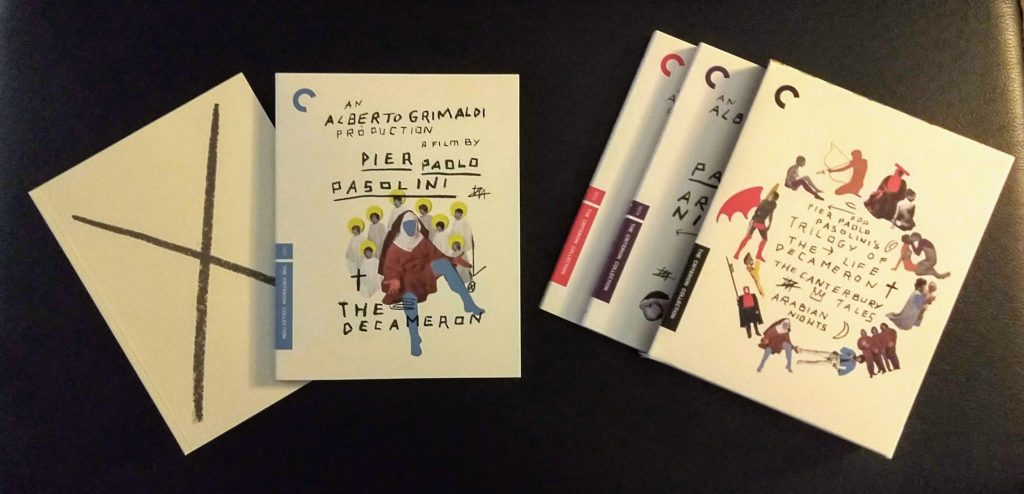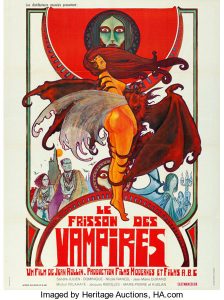Updated 24 Feb 2019 (notes on The Canterbury Tales)
More lit when I purged my CDs. Beyond the pulp sci-fi were a few classics I’d never read but should have:

The Decameron
First up: The Decameron. The edition I got is a translation by Mark Musa and Peter Bandanella, with 21 of the 100 stories (novelle) and essays spanning his contemporaries (seven, including three by Petrarca) and more modern ones dating from the 1700s to the 1970s and closing with a tight summary essay by the translators. The inclusion of the wide ranging essays was the primary reason I got this edition and sacrificed a copy with the entire Decameron. Quoting the preface:
The modern criticism includes a representative selection of past and current critical approaches to Boccaccio’s Decameron. Some essays reflect important historical interpretations (Ugo Foscolo and Francesco De Sanctis). Others illustrate particular critical methods–the philological (Auerbach), the philosophical (Scaglione), the formalist (Clements), the structuralist (Todorov), the rhetorical (Booth), the archetypal (Cottino-Jones), and the historical (Bergin).
While reading, I rewatched the light, fun indie film from 2017 called The Little Hours [ IMDB | Metacritic | Rotten Tomatoes ]. It takes a few of the stories from the book and combines them into a relatively continuous whole. The movie is set in the time the stories take place (mid 1300s) but it filters them through a modern prism. Recommended.
From one of the essays I learned that there’s another, more faithful movie version directed by Pasolini from 1971. I can’t find a good copy streaming online so I’ll probably purchase The Criterion Collection’s set called Trilogy of Life which includes The Decameron [ IMDB | Rotten Tomatoes ], The Canterbury Tales (perfect for when I read that next), and The Thousand and One Nights. (The latter I had failed to read fully a few years back from my Everyman’s Library edition titled The Arabian Nights, translated by Husain Haddawy.) The Pasolini trailer for The Decameron looks bonkers, and the 70s music is… something.
Notes I had taken while reading the essays:
7 women, 3 men, open and close by the author, 10 days, 1 narrator per day, 10 stories each day
Opens with a detailed, grim description of the plague in Florence. Stories taken from classical sources, farce, fabliaux (fabliau/fabliaux/fablel/fable, obscene and humorous), Florentine gossip, anecdotes. Each day has a theme. Common with novella. Sometimes explicit theme, sometimes uncertain. Peril and wit, strife and good fortune, unhappy love, treasonous wives, etc. Villa as middle ground between the stifling city and the open country. Day 1 and 9 have no specific theme and act as bookends, day 10 deals with noble deeds and how man can be moral in a secular world.
(novella has more varied characters, locations, and social class than in fablels, the novella definition changes, short, “Unity and verbosity are mortal enemies.”)
Populated by all classes, ~338 characters, 83 women mentioned by name, >250 men, compare with Dante’s Comedy 50 years prior which had ~20 women and most were historical, not contemporary.
The Decameron is the human comedy cf. Dante’s The Divine Comedy
The Decameron is an accomplishment of such decor and vigor as to make the minor creative works seem anemic by comparison and to overshadow the pedantic virtues of the compendia
Also:
Dante closed one work and Boccaccio opened up a new one.
Placed between the High Middle Ages and the Renaissance. In the Middle Ages priest and knight were supreme, as was Christianity. This changed to the pragmatism of the merchant class. The story of the Jew and the duplicate rings he gave to his sons (I, 3) viewed as a metaphor for the equality of all Abrahamic religions was unthinkable prior. From a time of spirit to that of nature. Move from spiritual to earthly leaves behind the prior’s structure, Decameron is chaotic with different stories, no unity of style.
Depicting man’s passions and ingenuity over spiritual supremacy and devotion. Women cleverly flouting conventions for appearance and not being judged: hiding infidelity from their husbands, being kidnapped and having sex with multiple men but being presented as a virgin, being evil and lying but then saving another’s social standing. Saving appearance is a virtue. Noble woman is chastised by her father for having an affair with a commoner. Her reply: “we are all made of the same flesh.” Social leveling.
No donna angelica, untouchable. Sexual desire becomes acceptable as the beloved.
Boccaccio later wanted the book burned and was talked out of it by Petrarca. Boccaccio became a misogynist. Boccaccio’s change in styles throughout his life matched his change in cities and surroundings. Courtly to allegory to merchant class.
Writers at the time memorized stories like musicians memorize music.
The lives of the great Italian writers overlap:
- Dante Alighieri – 1265-1321
- Petrarca – 1304-1374
- Giovanni Boccaccio – 1313-1375
- Geoffrey Chaucer – 1343-1400
Major works:
- Divine Comedy, Dante, 1320
- Il Canzoniere, Petrarca, 1327-1368
- The Decameron, Boccaccio, finished 1351
- The Canterbury Tales, Chaucer, 1387-1400
Boccaccio:
Naturally skilled in grammar, educated by Giovanni, father of his friend Zanobi da Strada, Boccaccio’s father made him go into accounting (common in Florence) then the law.
Greek teacher Leonitus Pilatus from Thessaly, Petrarca learned from the monk Barlaamo from San Bacilio Cesariense.
Very poor most of his life, had to transcribe books, they later became part of a library.
- Ottava rima: ABABABCC
- Terza rima: ABA BCB CDC DED …
Boccaccio’s writings:
- 4 works of lesser quality, ~1330s, exaltation of love
- 4 skilled written in Florence, 1340s, more allegorical
- 4 learned studies, reference for men of letters, 1350s, often revised, sometimes difficult to classify, essays, biographies of ancients and contemporaries
- Genealogia Deorum Gentilium (On the Genealogy of the Gods, 15 volumes, 1360-death)
- On Rivers and Mountains, addendum
- De Casibus Virorum Illustrium (On the Fates of Famous Men, 9 volumes, 1355-1360)
- De Mulieribus Claris or De Claris Mulieribus (Concerning Famous Women, 1361-1362)
Other works:
- Filocolo, book five was also a frame story told by young aristocrats, “written between 1335-36. It is considered to be the first novel of Italian literature written in prose. It is based on a very popular story of the time, Florio e Biancifiore.”
- Eclogues
- Ninfale
- Teseida
- The Love of Areita and Palemone
- Fiametta
- Ameto, frame story, Comedia delle ninfe fiorentine, 1341
Updated 25 Dec 2018 (movies)
Got the movies, realized they’re Blue-ray and I don’t have a Blue-ray player, purchased Blue-ray player.

The Decameron was much better than I expected. The trailer was cheesy 70s escapades; the actual movie was beautiful, sometimes static, sometimes sweet. The film is constructed of stories from the book threaded together into somewhat of a whole. Though characters may not know each other, they exist in the same world and may pass each other in the street. In many of the stories, Pasolini expressively lingers on characters’ faces and expressions. There was much casual nudity that felt of the time (1300s). There’s an added story of Giotto painting a mural that was threaded though the actual stories taken from the book. His process of inspiration included some wonderfully framed shots of the city and the people populating it, and the ending with him was perfect.
Updated 24 Feb 2019 (notes on The Canterbury Tales)
Finished The Canterbury Tales. Notes.









